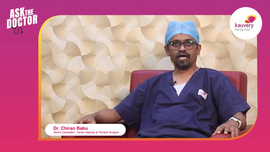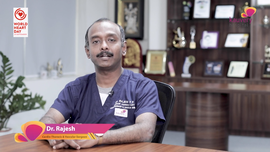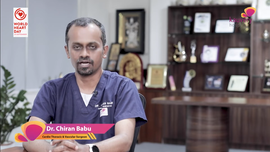Cardiology
Kauvery Hospital is a recognised heart specialist hospital in Bangalore, offering a complete range of heart care services, from valve replacement to advanced interventional cardiology, ensuring comprehensive treatment for all cardiac conditions. The department of cardiology offers best-in-class technology and the expertise of our renowned specialists. We deliver accurate diagnoses and advanced treatments, including heart transplants.
Recognized as the centre of excellence for angioplasty, we are dedicated to providing rapid response and efficient care, especially during emergencies. This commitment ensures optimal outcomes for our patients, reinforcing our position as a leader in cardiac care.
Best Heart Hospital in Bangalore
Kauvery Hospital stands as a leading heart hospital in Bangalore, renowned for its state-of-the-art infrastructure, including the advanced Philips Azurion Cath Lab along with IVUS, IVL and rotablation facilities. We offer a comprehensive range of cardiac care services, from minimally invasive procedures to complex heart surgeries. With a team of expert cardiologists boasting over 50 years of combined experience, we ensure accurate diagnoses, effective treatments, and unparalleled patient care, making us a trusted destination for heart health in Bangalore.
Infrastructure & Technology
At Kauvery Hospital, we leverage cutting-edge infrastructure and state-of-the-art technology to deliver the best possible outcomes in cardiac care. Our advanced facilities include:
- Cath Lab with Heart Navigation: Ensures precise imaging and navigation during complex cardiac procedures.
- IVUS (Intravascular Ultrasound): Provides detailed visuals of artery walls for accurate diagnoses and treatment planning.
- Rotablation and IVL (Intravascular Lithotripsy): For treatment of heavily calcified vessels.
- 3D Electrical Cardiac Mapping: A high-tech solution to diagnose and treat heart rhythm irregularities.
- TEE (Transesophageal Echocardiography): Offers high-resolution imaging of the heart and blood vessels.
- Advanced Diagnostic Tools: Including Holter monitoring, Contrast Echocardiography, and Dobutamine Stress ECHO.
Why Kauvery Multi-Speciality Hospital, Bangalore?
- Expert Heart Specialists: Our skilled cardiologists and cardiac surgeons are renowned for handling complex cardiac conditions with an overall of 50+ years of experience.
- State-of-the-Heart Technology: With innovative tools and techniques, we ensure accurate diagnosis and cutting-edge treatments.
- Patient-Centered Care: We deliver personalised treatment plans that focus on long-term wellness.
- Comprehensive Services: From prevention and diagnosis to treatment and rehabilitation, we provide holistic cardiac care.
- Nursing
Our Achievements
- Pioneering Cardiac Care: Among the first in the region to introduce minimally invasive cardiac procedures.
- Minimally Invasive Cardiac Procedures: First center in the region to perform TAVI procedure using Heart Navigation
- High Success Rates: Consistently exceeding national benchmarks in cardiac outcomes with 98% of success rate.
- Accreditations: Recognized for excellence in patient care and advanced treatments.
Common Cardiovascular Diseases
At Kauvery Hospital, we provide expert care for a wide range of cardiovascular diseases, including:
- Coronary Artery Disease (CAD)
- Arrhythmias
- Heart Failure
- Valvular Heart Diseases
- Peripheral Vascular Diseases
- Hypertension (High Blood Pressure)
- Congenital Heart Defects
Cardiology Procedures and Treatments
The Cardiology Department is committed to providing multidisciplinary, integrated and patient centric treatments. Our comprehensive cardiovascular as well as thoracic treatments and procedures produce results, which exceed national quality benchmarks. Our treatments are backed by latest technological advancements and innovative trials. Our procedures are broadly divided into two categories:
Invasive Cardiac Procedures
Angioplasty
It is a minimally invasive technique used to restore blood flow through the artery.
Renal Angioplasty and Carotid Angioplasty
Renal angioplasty is a method to treat renal artery stenosis. Carotid Angioplasty is a method that opens the blocked arteries to restore blood flow to the brain.
Pacemaker Implantation
A procedure in which a small electronic device is implanted in the chest to help regulate slow electrical problems with the heart.
ICDs and Combo device implantation
ICDs are implantable cardioverter defibrillator is a device used to track heart rate. A combo device is used to improve the pumping capacity of the heart and prevent sudden death in patients with heart failure.
IVUS
It is an Intravascular ultrasound or intravascular echocardiography procedure which uses high-frequency sound to show a detailed visualization of the artery wall.
Transcatheter aortic valve implantation (TAVI)
A procedure where the aortic valve replacement is done in the CATH Lab.
Fistuloplasty
A minimally invasive procedure to widen narrowed blood vessels in arteriovenous fistulas for improved dialysis access.
Angiography
It is a test conducted to evaluate the functioning of the blood vessels to detect blockages and flow abnormalities.
Percutaneous Aortic, Mitral, Pulmonary and Tricuspid Valvotomies
It is a procedure that involves the replacement of Aortic valve, Mitral valve, Pulmonary valve and Tricuspid valve due to high surgical risk.
Peripheral Angioplasty including Subintimal Angioplasty
Peripheral angioplasty is a minimally invasive procedure used to re-open blood vessels to allow oxygen-rich blood to pass through smoothly.
Subintimal Angioplasty
A procedure to treat athero-occlusive disease of the superficial femoral artery.
IVC filter and Pulmonary Embolectomy
Inferior vena cava is a type of vascular filter to help prevent pulmonary embolism. A Pulmonary Embolectomy is a surgical method that involves removal of pulmonary embolism.
Septal Ablation for HOCM
It is a non-surgical procedure to treat hypertrophic cardiomyopathy.
Device closure of congenital cardiac defects
The closure devices are used to close a birth defect or an opening between the right and left sides of the heart.
Radiofrequency Ablation for supraventricular and ventricular tachyarrhythmia
It is a procedure used to treat ventricular tachycardia.
3D Electrical Cardiac Mapping
A procedure that is used to diagnose the improper beating of the heart or arrythmia.
Resynchronization therapy
It is a procedure used to implant a device in the chest to make the heart chambers contract, as a treatment option for heart failure.
Non-Invasive Cardiac Procedures
Echocardiography and 3D Echocardiography
It is an echo test or heart ultrasound test that uses sound waves to create moving pictures of your heart, including absolute heart chamber volumes and functions.
TEE
Trans-oesophageal echocardiography uses sound waves to create moving pictures of heart and its blood vessels.
Dobutamine stress ECHO
A test procedure used to determine the heart’s function and structures under stress.
Contrast Echocardiography
It is a procedure to improve echocardiographic resolution and providing real-time evaluation of intracardiac blood flow.
Holter
A Holter is a portable electrocardiography device used for cardiac monitoring (tracking heart’s rhythms) for 24 to 48 hours..
FAQs
- Non-Invasive: Diagnoses heart conditions using imaging and tests.
- Invasive: Treats conditions using catheter-based techniques like angioplasty.
- Surgical: Includes open-heart surgeries performed by cardiac surgeons.
A cardiologist diagnoses and manages heart diseases via endovascular (minimally invasive) interventions, while a cardiac surgeon performs operations like bypass or valve replacement (open heart surgery).
They evaluate your medical history, perform a physical exam, and may recommend diagnostic tests like an ECG, Echocardiogram and Tread Mill Test.
Conditions like CAD, arrhythmias, valve diseases, peripheral vascular disease and congenital defects are effectively treated here.
Symptoms like chest pain, shortness of breath, dizziness, and fatigue could indicate a heart problem.
Common causes include high blood pressure, diabetes, smoking, obesity, and a sedentary lifestyle.
Tests like ECG, echocardiogram, stress test, and blood tests help assess your heart health.
You should consult a cardiologist if you have risk factors like a family history of heart disease or after 40 for preventive care.
Monitor your heart rate, blood pressure, and overall energy levels; seek medical advice if anything feels off.
Adopt a healthy diet, exercise regularly, quit smoking, manage stress, and get regular check-ups.
Kauvery Hospital is the best cardiology hospital in Bangalore, combining expertise, compassion, and state-of-the-art technology to set a new benchmark in cardiac care. Whether it’s a routine check-up or a complex heart surgery, trust us as your preferred heart hospital in Bangalore.

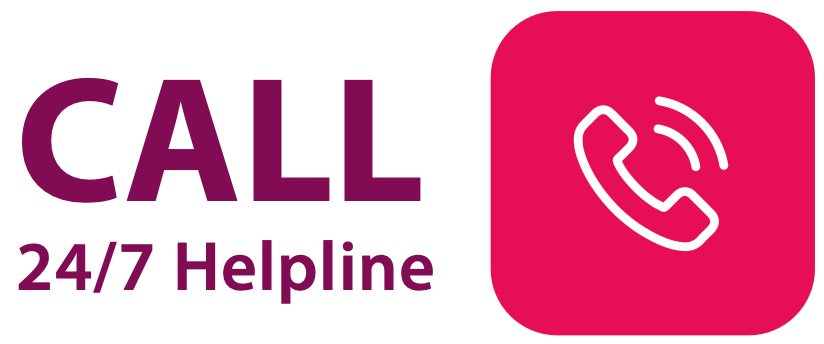
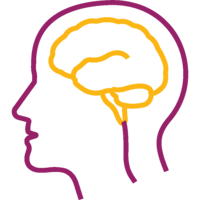 Neurosciences
Neurosciences Bariatric Surgery
Bariatric Surgery